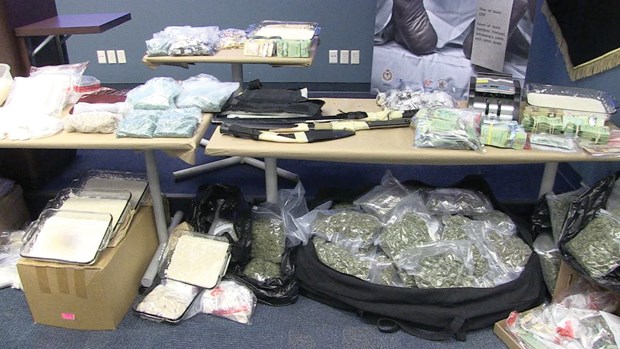A fentanyl overdose is suspected in the death of a 31-year-old North Vancouver man Friday night.
The man was found unresponsive by family members late in the evening, said North Vancouver RCMP spokesman Cpl. Richard De Jong, adding, despite lifesaving efforts the victim died at the scene.
Police are now looking at the possibility the man took OxyContin laced with a lethal dose of fentanyl — a synthetic opioid linked to the deaths of North Vancouver couple Hardy and Amelia Leighton, 31 and 30, parents to a toddler, two weeks ago.
“So our investigation has revealed a suspected link to fentanyl. We do not know definitively until toxicology (analysis) is done,” said De Jong.
The Leighton case, along with the suspected fentanyl-related death of a Burnaby teenager on Saturday evening, has police on both sides of the bridge comparing notes to see if the deaths are connected.
“Most definitely … we are comparing not only notes but strategies (about) being proactive with messaging and enforcement to find out where these drugs originate from, because it’s becoming a great concern,” said De Jong.
While it may appear North Vancouver alone has been hit with a rash of fentanyl overdoses lately, the reality is it’s happening all over the Lower Mainland, say both RCMP and the B.C. Coroners Service.
In the last two weeks, police in Surrey, North Vancouver and Coquitlam have put out warnings about fentanyl, following a spike in overdoses linked to the drug which is far more powerful than morphine.
Coroner Barb McLintock said toxicology reports, expected back “in days,” from the recent fentanyl overdoses should give them a better idea of what’s behind these deaths.
“But obviously it’s the usual problem: you really don’t know what (drug) you are taking,” said McLintock, adding advising illicit drug users to know their source isn’t always foolproof.
Often even street level drug dealers don’t know what they are getting, said McLintock.
Breathing problems and loud snoring are signs of a fentanyl overdose, which can be reversible if caught in time. That’s one reason people should not do drugs alone, said McLintock.
In some overdose cases, victims are portrayed as only having dabbled in recreational drugs. McLintock said those accounts shouldn’t necessarily be believed.
“Some people are very good at hiding at what is going on (with drugs),” she said.



